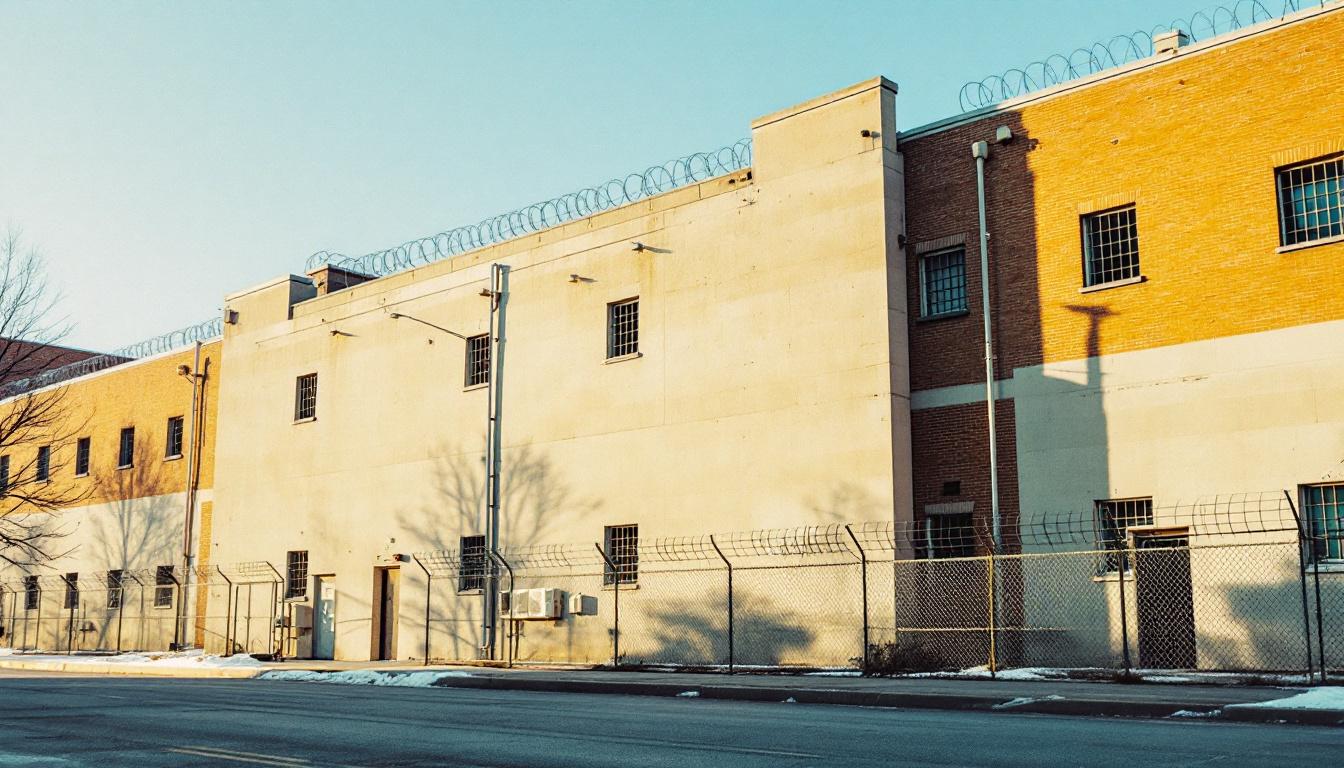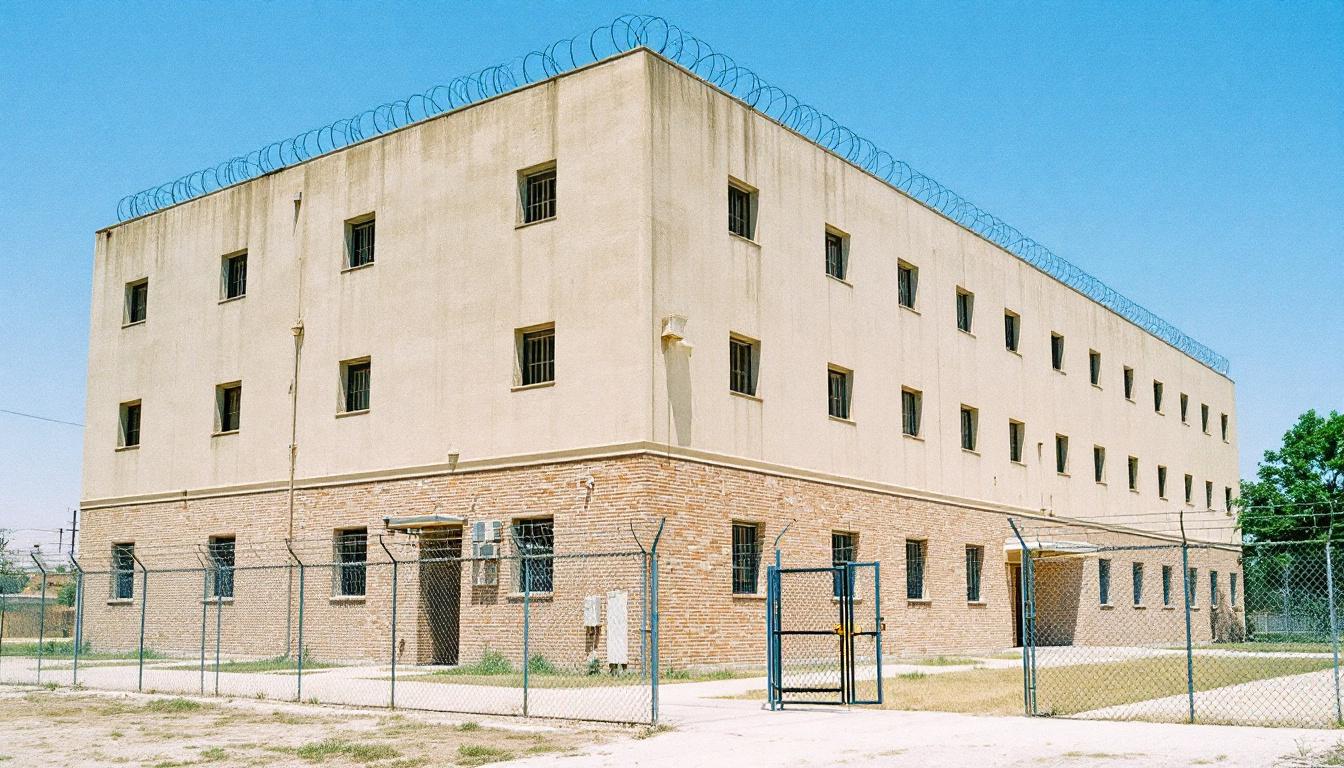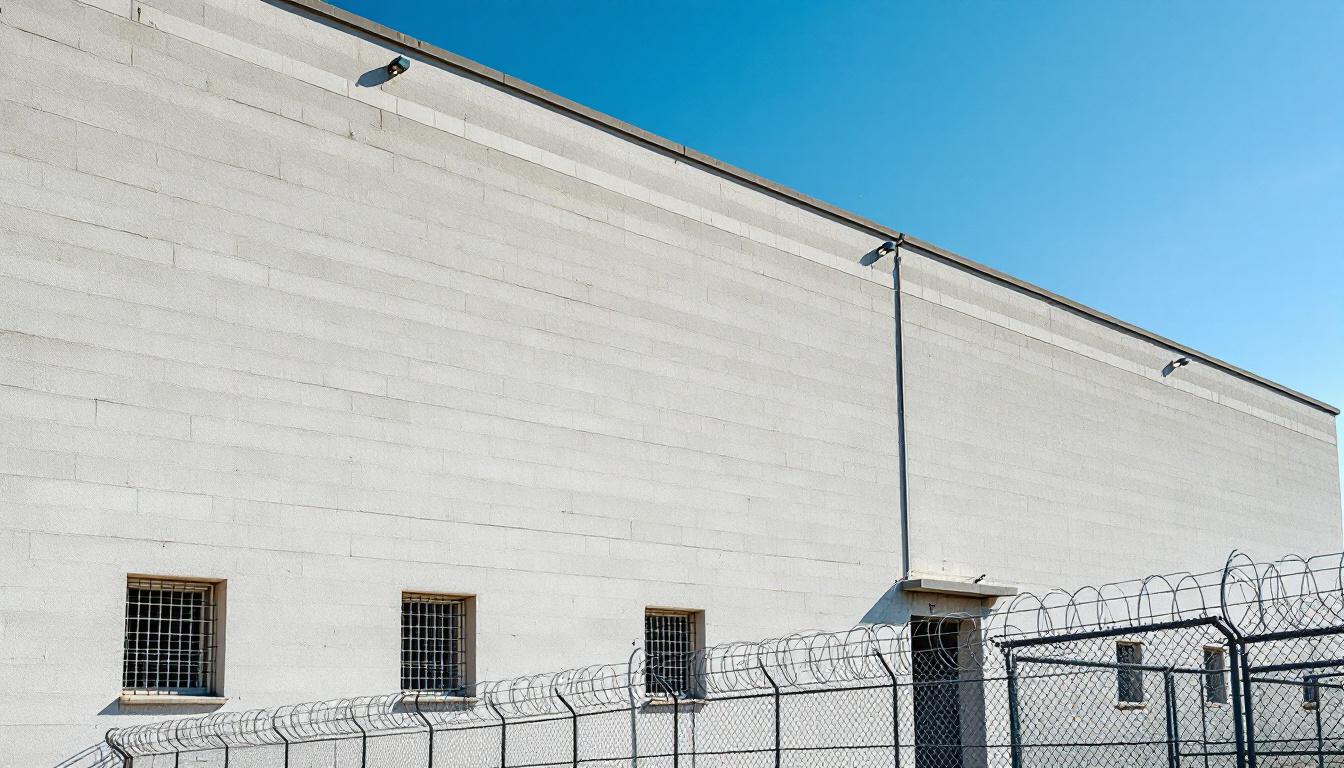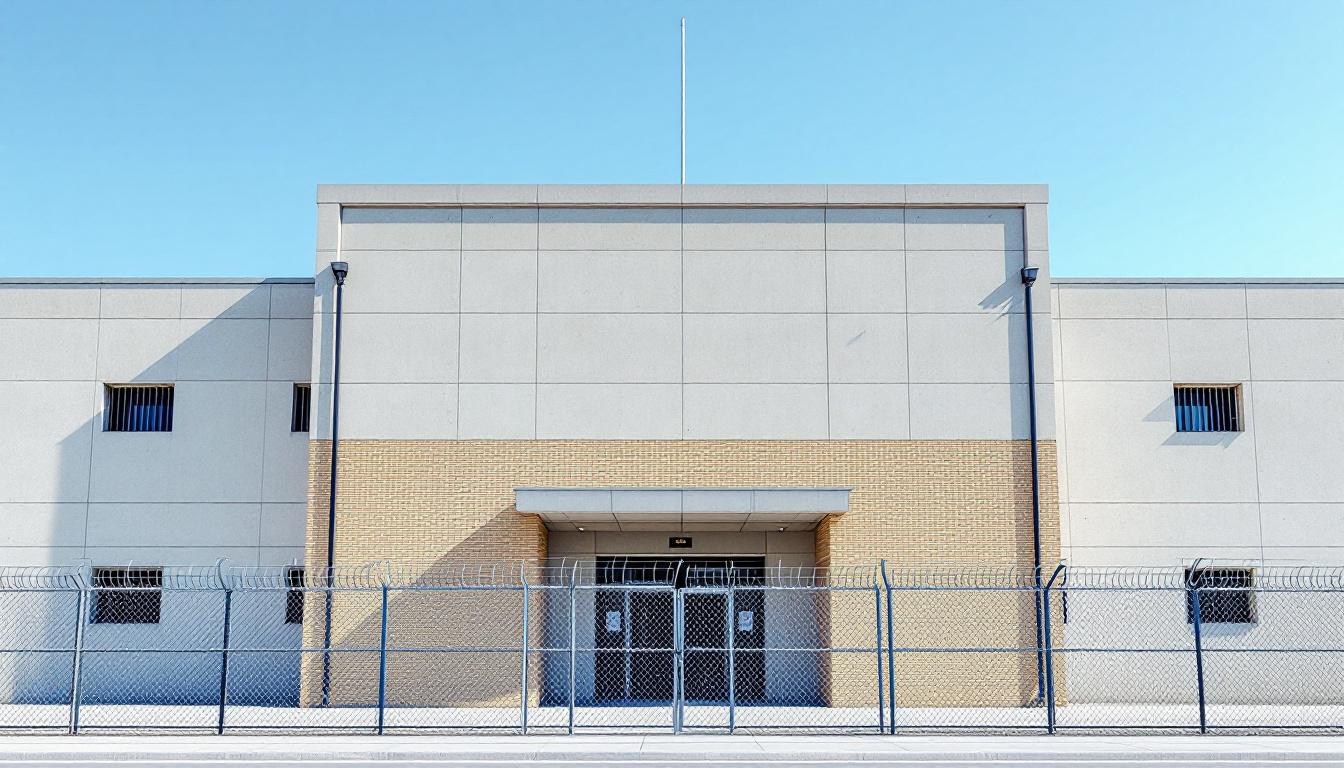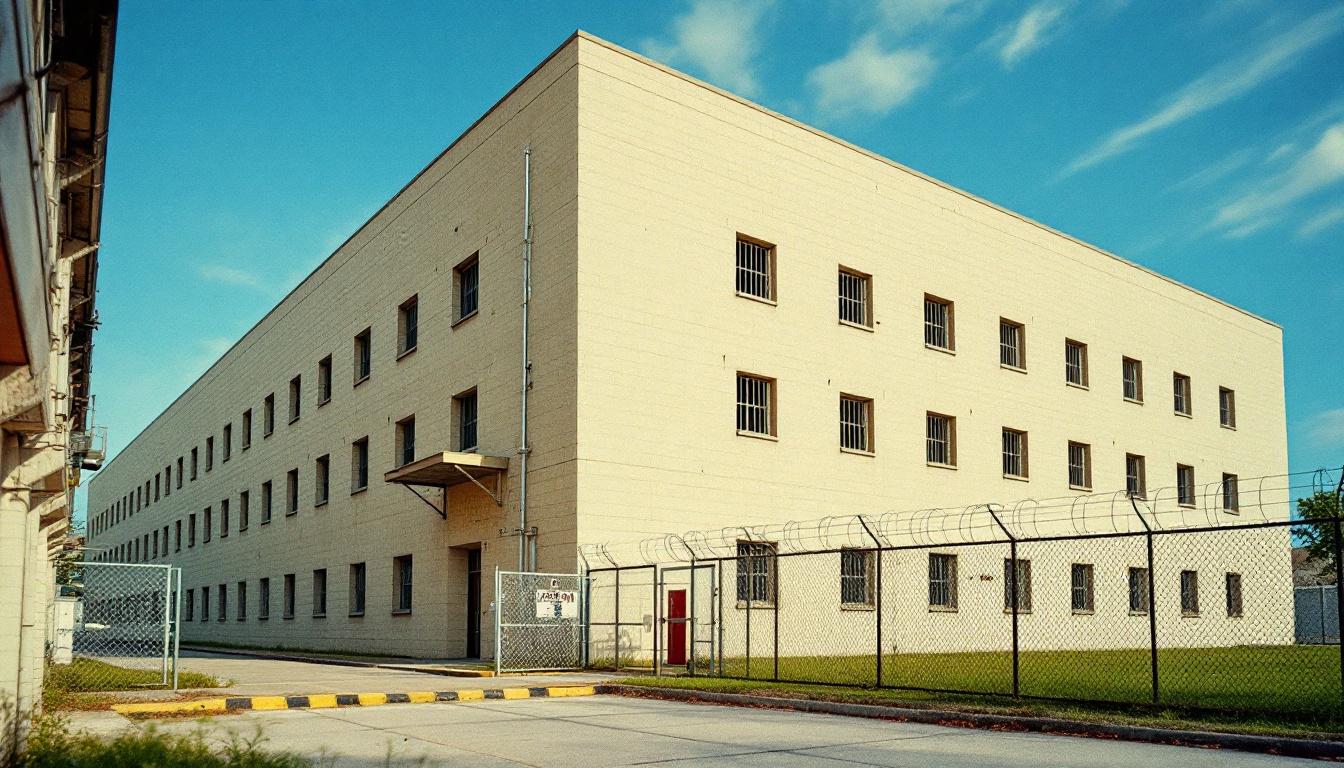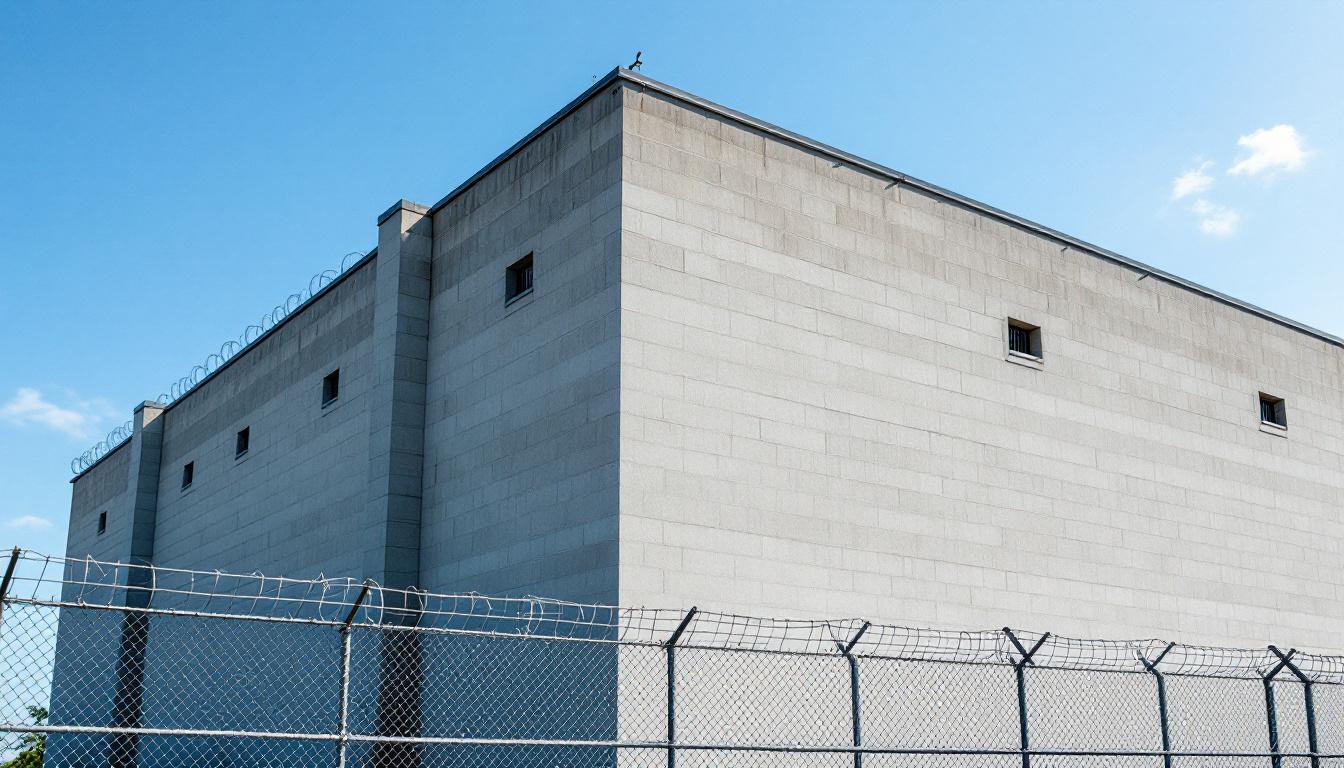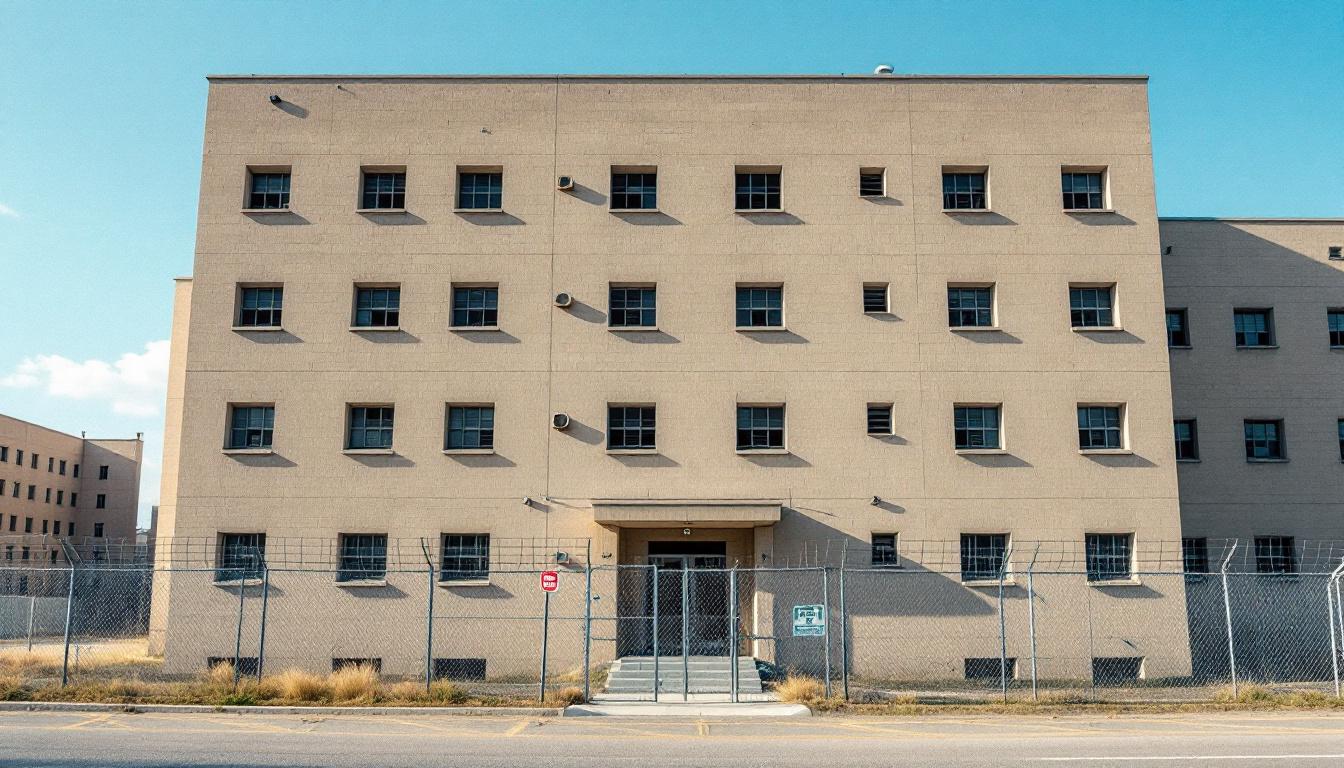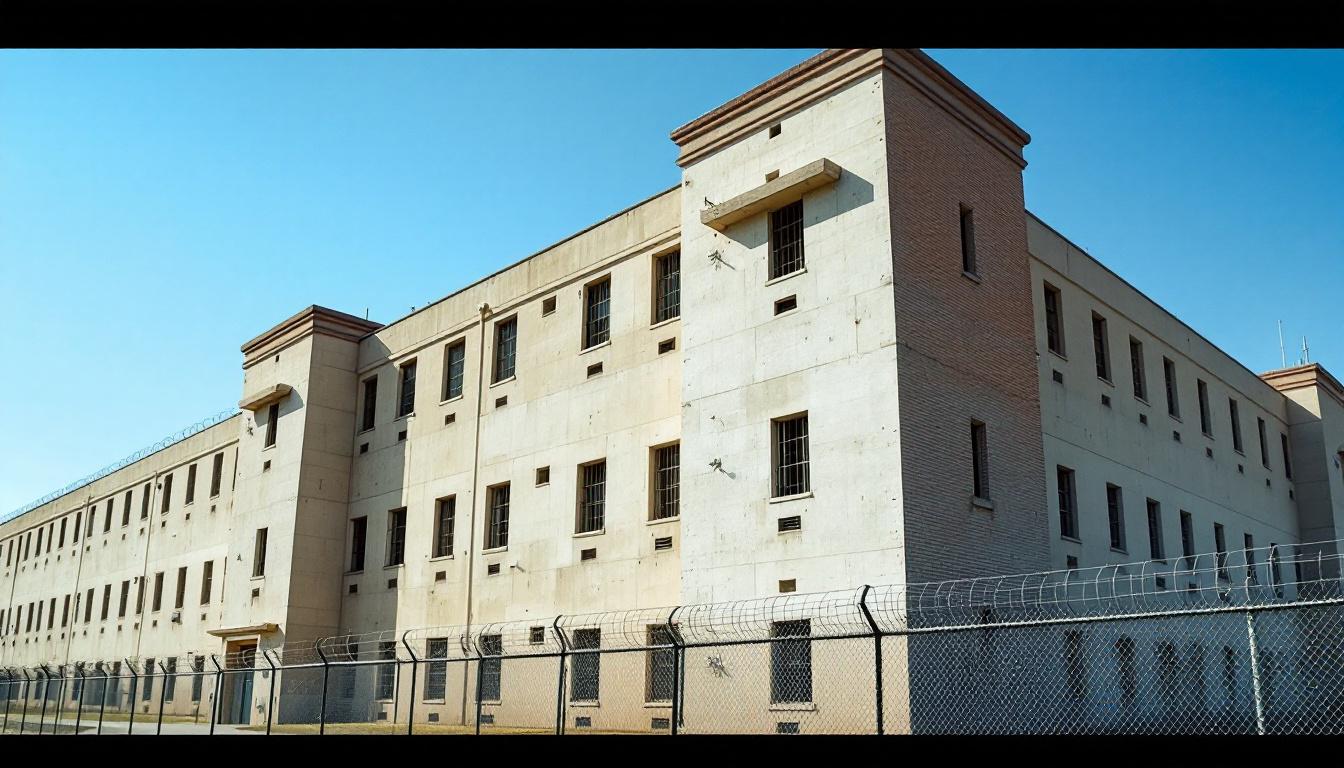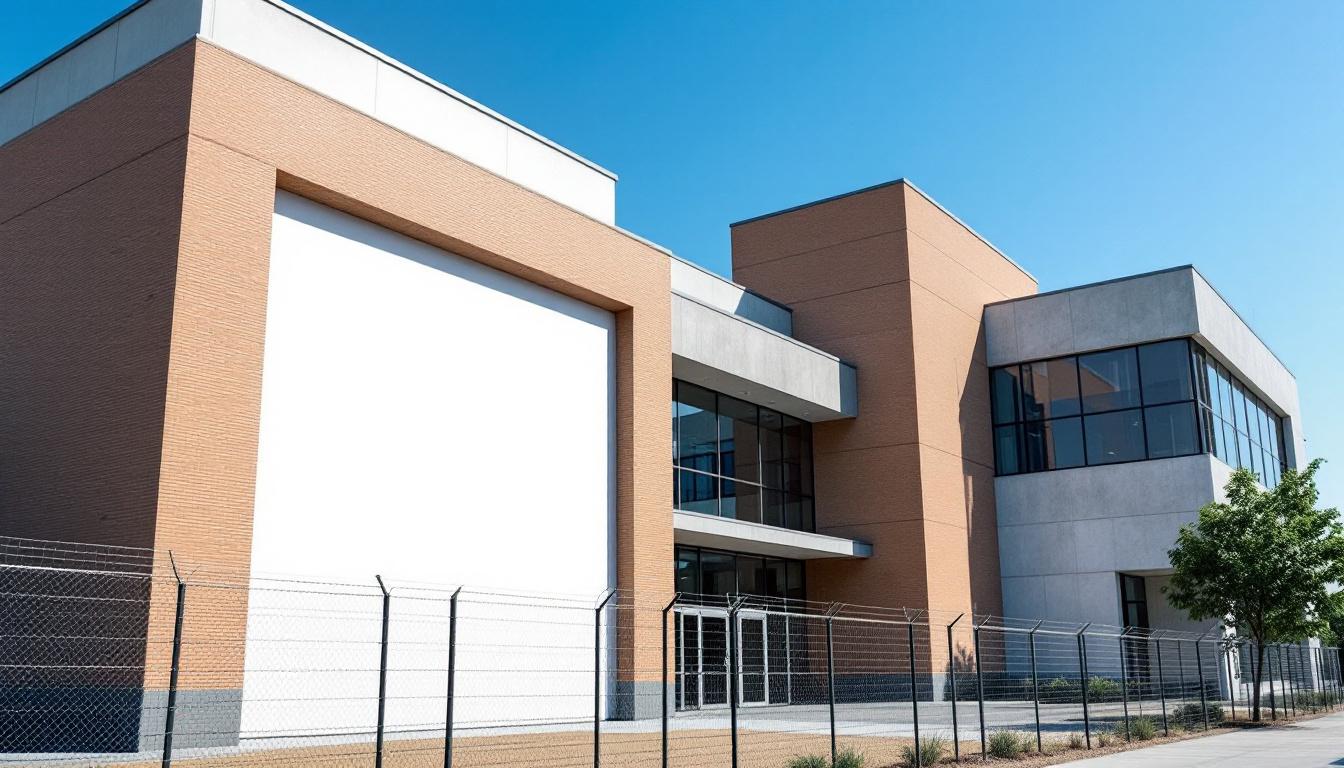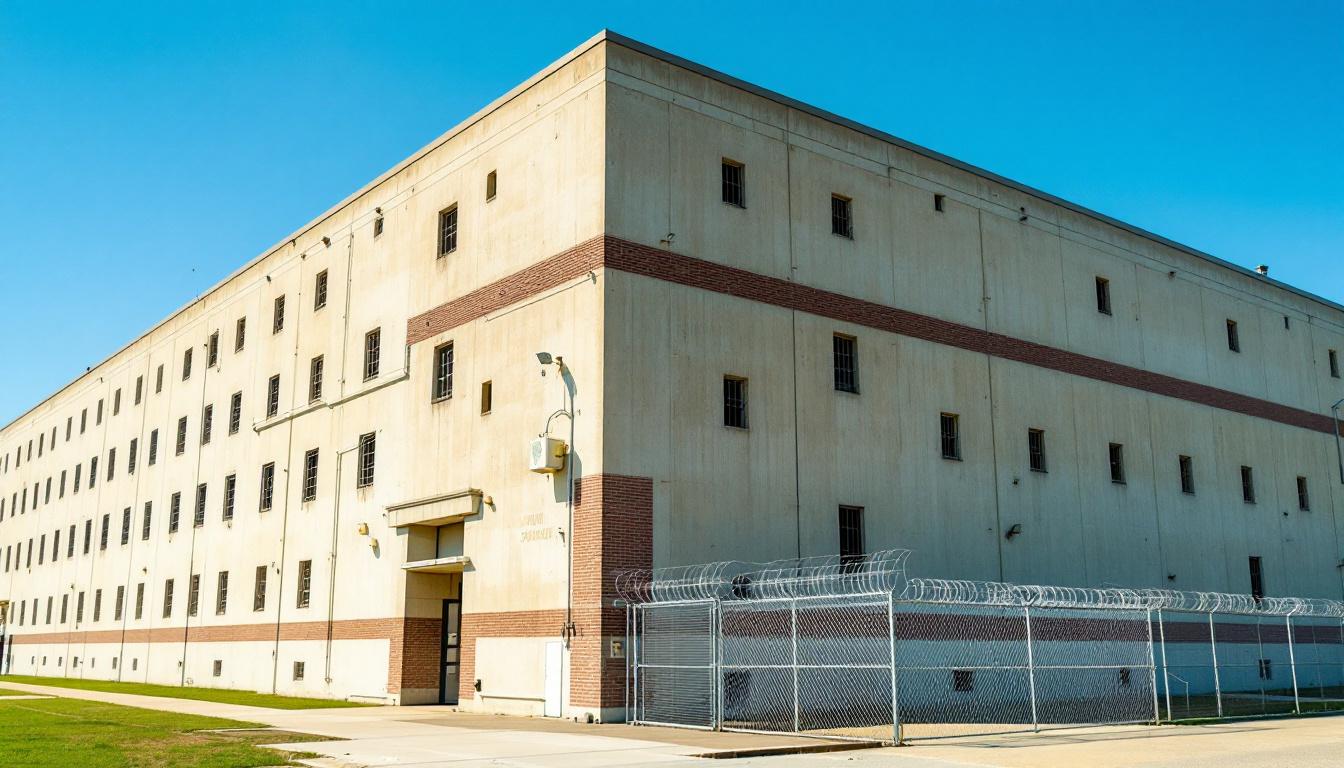
Quick Navigation
How to contact an inmate at Talladega County Jail
This comprehensive guide will walk you through how to connect with an inmate at Talladega County Jail. Follow the steps below to find an inmate and send letters and photos:
- Search for the inmate using our search tool below
- Create your account or log in to Penmate
- Write your message (up to 6,000 characters)
- Send instantly - inmates receive printed copies daily
Find an Inmate
Search for an inmate to start communicating today
Tip: You can search by first name, last name, or inmate ID number
To contact a person at Talladega County Jail start by searching for the person on the facility website. Perform a search by following these steps:
- Step 1: Enter their first name and last name into the search form and click "Search"
- Step 2: Locate their inmate record
- Step 3: Write down their Inmate ID and any housing information provided
Important! Be sure to enter the person's full name. Nicknames should not be used.
How to Send Messages to Inmates

You can use your phone or computer to send emails, letters, and photos to an inmate. Messages are sent electronically to inmate tablets or kiosks at the facility. If you would like to send a message, start by searching for an inmate at Talladega County Jail.
Sending Photos and Postcards

A great way to send love and support to a loved one at Talladega County Jail is to send photos and postcards. It only takes a few minutes to send photos from your phone and it makes a huge difference. You can also mail postcards with words of support and inspiration, or design your own postcard for special moments like birthdays and holidays.
Important! Be sure not to send any explicit photos or they may not be approved by the facility. You can also use a photo printing app like Penmate to make sure your photos are printed at the correct size (4x6 or 3x5) and are mailed according to the rules and regulations of Talladega County Jail.
Frequently asked questions about Talladega County Jail
-
How long does it take to deliver a message?
If you're sending an email message your letter is usually delivered within 24-48 hours. For messages sent via mail you should expect delivery within 3-7 days. All messages will need be approved by Talladega County Jail.
-
How much does it cost to send a message to Talladega County Jail?
You can send a message free using your phone or mail a message via USPS for the price of a $0.60 stamp and envelope. You can also purchase credits or e-stamps from services starting at $1.99.
-
What services can I use to contact an inmate at Talladega County Jail?
Penmate
You can use Penmate to send letters and photos to an inmate from your phone. It's an easy way to stay in touch during your loved one's incarceration. Use the inmate locator to find an inmate's location and contact information, then you can send messages within a few minutes.
Securus messaging
Securus may be another option for communicating with an inmate at Talladega County Jail. You can create a friends and family account and purchase credits to send messages. All messages will be reviewed and must be approved by the facility.
JPay
Some county jails and state prisons may support sending messages with JPay. You must register an account with the system, find your loved one, and purchase stamps to send messages. For some locations you can also attach photos.
Smart Jail Mail
You may also check if Smart Jail Mail is available at Talladega County Jail. Smart Jail Mail is operated by Smart Communications and has contracted with some state and county jails. After purchasing credits, your messages and photos are sent to the facility, printed out, and then handed out to your loved one.
-
What is the mailing address of Talladega County Jail?
Mailing address:
Talladega County Jail
150 E Renfroe Rd
Talladega, AL 35160
Phone: (256) 761-2000Business hours:
- Monday: 8:00 – 10:30 AM
- 1:00 – 3:30 PM
- 6:00 – 6:30 PM
- Tuesday: 8:00 – 10:30 AM
- 1:00 – 3:30 PM
- 6:00 – 6:30 PM
- Wednesday: 8:00 – 10:30 AM
- 1:00 – 3:30 PM
- 6:00 – 6:30 PM
- Thursday: 8:00 – 10:30 AM
- 1:00 – 3:30 PM
- 6:00 – 6:30 PM
- Friday: 8:00 – 10:30 AM
- 1:00 – 3:30 PM
- 6:00 – 6:30 PM
- Saturday: Closed
- Sunday: Closed
-
What are the visiting hours at Talladega County Jail?
Visiting hours at Talladega County Jail vary by housing unit and security level. Generally, visits are scheduled on weekends and holidays, with some facilities offering weekday visits. Contact the facility directly at (256) 761-2000 or check their website for the current visiting schedule. Visits typically last 30-60 minutes and must be scheduled in advance.
-
What items are prohibited when sending mail to Talladega County Jail?
Prohibited items typically include: cash, personal checks, stamps, stickers, glitter, glue, tape, staples, paperclips, polaroid photos, musical or blank greeting cards, hardcover books, magazines with staples, and any items containing metal or electronics. Only send letters on plain white paper with blue or black ink. Photos must be printed on regular photo paper (no Polaroids). Always check with Talladega County Jail for their specific mail policies.
-
How do I send money to an inmate at Talladega County Jail?
You can send money to an inmate at Talladega County Jail through several methods: 1) Online using JPay, Access Corrections, or the facility's approved vendor, 2) Money orders mailed directly to the facility with the inmate's name and ID number, 3) Kiosks located in the facility lobby, or 4) Over the phone using a credit or debit card. Fees vary by method, typically ranging from $2.95 to $11.95 per transaction.
-
Can I schedule a video visit with an inmate at Talladega County Jail?
Many facilities now offer video visitation as an alternative to in-person visits. At Talladega County Jail, video visits may be available through services like Penmate, Securus Video Connect, GTL, or ICSolutions. Video visits typically cost $10-20 for 20-30 minutes and must be scheduled in advance. You'll need a computer or smartphone with a camera and reliable internet connection. Contact the facility for their specific video visitation policies and approved vendors.
-
What identification do I need to visit an inmate at Talladega County Jail?
All visitors must present valid government-issued photo identification such as a driver's license, state ID, passport, or military ID. Minors must be accompanied by a parent or legal guardian who can provide the minor's birth certificate. Some facilities require visitors to be on the inmate's approved visitation list, which may require a background check. Contact Talladega County Jail for specific ID requirements and visitor approval procedures.
-
How can I find out an inmate's release date?
To find an inmate's release date at Talladega County Jail, you can: 1) Use the online inmate search tool if available, 2) Call the facility's records department, 3) Contact the inmate's case manager or counselor, or 4) Have the inmate provide this information during a call or visit. For privacy reasons, some facilities only release this information to immediate family members.
Facility Overview
Contact Information
Talladega County Jail150 E Renfroe Rd
Talladega, AL 35160
Phone: (256) 761-2000
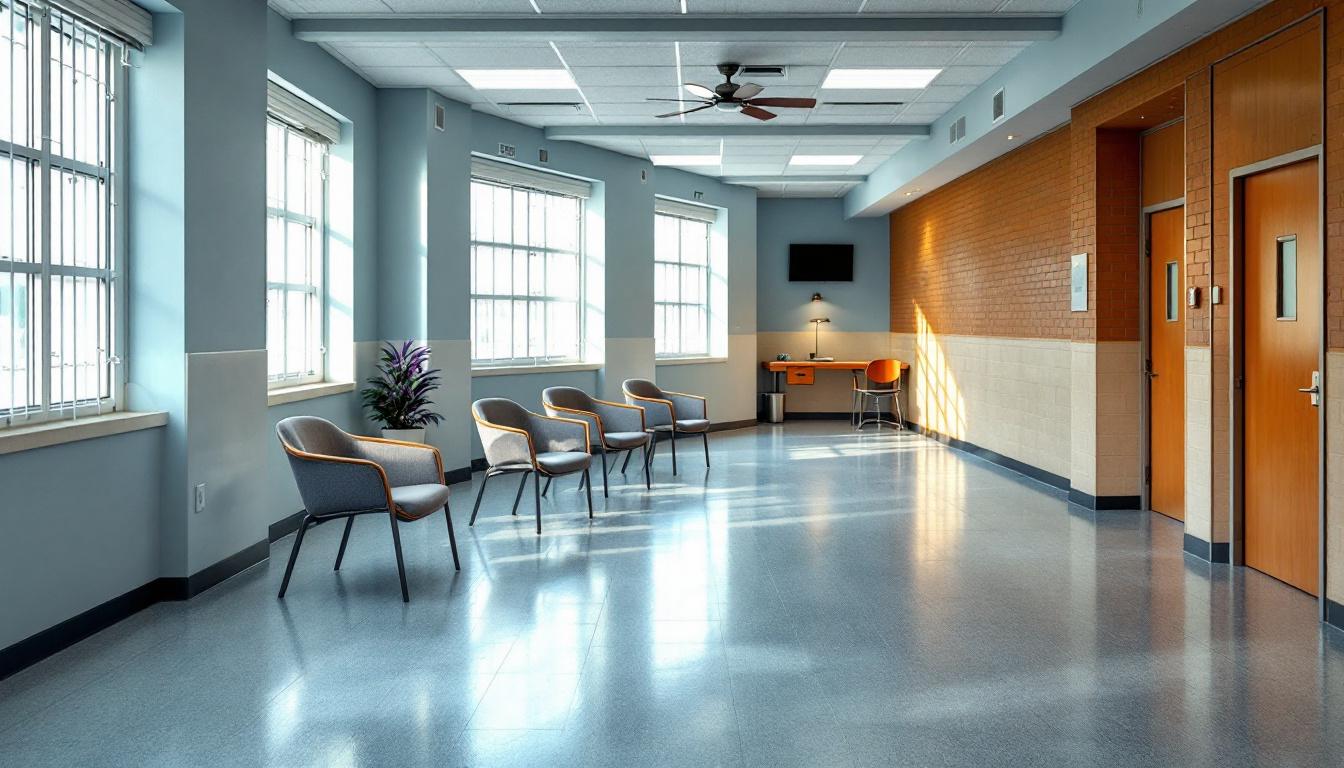
About Talladega County Jail
Supporting public safety while fostering pathways toward positive change defines the core mission of Talladega County Jail, an AL correctional facility serving the communities throughout this historic Alabama region. Located in Talladega, this county jail operates as an integral component of the local justice system, providing secure housing and essential services for those incarcerated while maintaining strong connections to the surrounding community.
The facility typically emphasizes a balanced approach to offender management and support, recognizing that effective corrections involves both maintaining security and addressing the underlying factors that may contribute to criminal behavior. Those incarcerated services often include educational opportunities, substance abuse programming, and mental health support designed to help individuals develop skills and coping strategies. The jail generally works to coordinate with local organizations and service providers to ensure continuity of care and support as individuals transition back into the community. Staff members may focus on creating structured environments that promote personal responsibility while maintaining the safety and security necessary for effective facility operations.
Within Alabama's correctional landscape, Talladega County Jail serves as a vital resource for law enforcement agencies and courts throughout the region. The facility typically houses individuals awaiting trial, those serving shorter sentences, and others involved in various stages of the judicial process. Rehabilitation programming may include job readiness training, life skills development, and counseling services that address the diverse needs of the incarcerated population, reflecting the facility's commitment to supporting both immediate public safety goals and longer-term community welfare objectives.
Programs & Services
Personal growth opportunities flourish within the structured environment at Talladega County Jail, where those incarcerated can access various offerings designed to support their development and future success. The facility typically emphasizes creating pathways for positive change through educational advancement, skill building, and personal reflection. This comprehensive approach recognizes that meaningful transformation often occurs when individuals have access to diverse resources that address both practical needs and personal growth objectives.
Educational advancement forms a cornerstone of the facility's developmental offerings. Those incarcerated may participate in education programs that help them work toward completing their high school equivalency or build foundational academic skills. The facility often includes special education services to ensure that individuals with learning differences receive appropriate support tailored to their specific needs. These educational opportunities typically provide structured learning environments where participants can focus on academic achievement while developing study habits and critical thinking skills that serve them well beyond their incarceration period.
Support services extend beyond traditional academics to encompass broader life preparation and personal development. Work release programs may furnish eligible participants with opportunities to maintain employment connections and develop professional skills in real-world settings. Also available are faith-based programs that often provide spiritual guidance and community support for those seeking to explore or strengthen their religious beliefs. The facility typically offers healthy relationships programming as well, which may focus on communication skills, conflict resolution, and building positive interpersonal connections that contribute to successful reintegration into the community.
Daily Life & Visitation
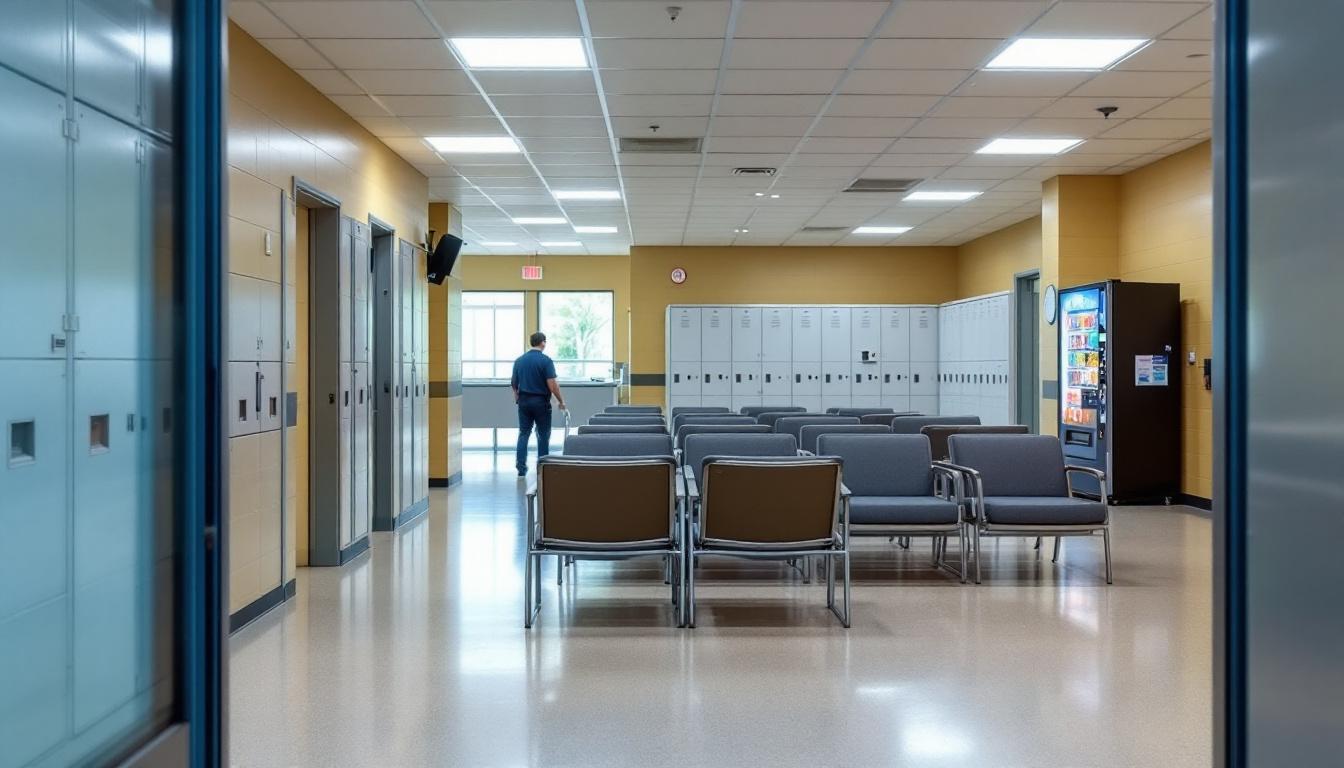
Maintaining connections with family members and loved ones remains a central focus for those incarcerated at Talladega County Jail, as these relationships often provide crucial emotional support during their time at the facility. The daily routine currently follows a structured schedule that continues to emphasize both security protocols and opportunities for social interaction among residents. Those incarcerated typically begin their day with morning counts and meal service, followed by various activities that may include work assignments, educational programming, or recreational periods that furnish important structure to their daily lives.
Living accommodations generally consist of dormitory-style housing units or individual cells, depending on classification levels and available space within the facility. Those incarcerated usually share common areas where they can interact with others during designated periods throughout the day. Meals are typically served in a central dining area or delivered to housing units, providing regular opportunities for social interaction among residents. However, all activities operate under supervision to maintain security and order within the facility.
Also available are various programs and services that help those incarcerated maintain connections with their families and communities outside the facility. Visitation policies typically allow for scheduled visits with approved family members and friends, while telephone access may be provided during certain hours of the day. Work assignments within the facility often include kitchen duties, maintenance tasks, or cleaning responsibilities that help residents develop job skills while contributing to daily operations. Recreation and exercise opportunities generally include access to outdoor areas when weather permits, along with indoor activities that may include television viewing, reading materials, and structured programming designed to support rehabilitation and personal development.
Ready to Connect?
Start communicating with your loved one today
Search for an Inmate
